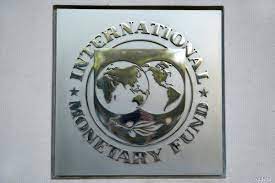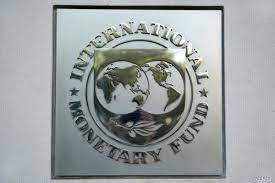
IMF Managing Director Kristalina Georgieva stated on Friday that the IMF's shareholders concurred this week on the significance of tackling the problems low-income nations face, many of them are saddled with unmanageable debt loads.
This week, a number of publications from the World Bank and the IMF raised serious concerns about the state of the economies and future prospects of low-income developing nations, many of which are still recovering from shocks like the COVID-19 pandemic.
The IMF revised down its estimate of 4.9% growth in January for the collective low-income countries to 4.7% in 2024.
In a different report, the World Bank reported that for the first time this century, the economies of half of the 75 poorest countries in the world were seeing their income gaps expanding with the richest economies, marking a historical reversal of development.
According to Georgieva, the IMF is attempting to strengthen its capacity to assist low-income nations that have been most severely affected by recent shocks. Two ways it is doing this are by increasing its quota share by 50% and providing resources to the Poverty Reduction and Growth Trust.
Both Georgieva and Mohammed Al-Jadaan, the finance minister of Saudi Arabia and the head of the IMF steering committee, stated that internal changes approved by the organisation this week ought to facilitate a quicker and more seamless debt restructuring process.
At this week's meeting of the Global Sovereign Debt Roundtable, which was organised by the World Bank and the IMF, Georgieva said that progress had been made in establishing deadlines for debt restructurings and guaranteeing that different creditors would receive comparable treatment.
These are the business and finance headlines to keep an eye on this coming week, ranging from troubled Asian currencies to earnings releases from European banks.
She claimed that high debt levels were a major burden for low-income nations, many of which are found in Sub-Saharan Africa, where average debt service payments have increased from 5% to 12% in the past ten years. In developed economies, high interest rates have deterred investment and increased borrowing costs.
According to Georgieva, "what is heartbreaking is that in some countries debt payments are up to 20% of revenues," which means that those nations have significantly less money to spend on infrastructure, employment, healthcare, and education.
According to her, the affected nations have to boost their domestic income through tax increases, ongoing inflation control measures, spending reductions, and the growth of local capital markets.
The economist from Bulgaria stated that these nations needed to increase their attractiveness to investors, and that the IMF was working with them to do so.
A new multilateral legal framework for sovereign debt should be implemented by the UN, according to Iolanda Fresnillo of the nonprofit European Network on Debt and Development. This is in line with present efforts to establish a new framework for tax cooperation.
She claimed that the existing strategy is too fragmented and that human rights, environmental degradation, and climate change should all be included in a larger framework.
Last week, U.S. Treasury Undersecretary Jay Shambaugh expressed concerns about the state of low-income nations and cautioned China and other emerging official creditors not to engage in free-riding by reducing their loans to these nations just when the IMF or multilateral development banks were providing them with large amounts of funding.
He said that In 2022, there were external public debt outflows from around 40 nations, and these outflows probably got worse in 2023.
(Source:www.reuters.com)
This week, a number of publications from the World Bank and the IMF raised serious concerns about the state of the economies and future prospects of low-income developing nations, many of which are still recovering from shocks like the COVID-19 pandemic.
The IMF revised down its estimate of 4.9% growth in January for the collective low-income countries to 4.7% in 2024.
In a different report, the World Bank reported that for the first time this century, the economies of half of the 75 poorest countries in the world were seeing their income gaps expanding with the richest economies, marking a historical reversal of development.
According to Georgieva, the IMF is attempting to strengthen its capacity to assist low-income nations that have been most severely affected by recent shocks. Two ways it is doing this are by increasing its quota share by 50% and providing resources to the Poverty Reduction and Growth Trust.
Both Georgieva and Mohammed Al-Jadaan, the finance minister of Saudi Arabia and the head of the IMF steering committee, stated that internal changes approved by the organisation this week ought to facilitate a quicker and more seamless debt restructuring process.
At this week's meeting of the Global Sovereign Debt Roundtable, which was organised by the World Bank and the IMF, Georgieva said that progress had been made in establishing deadlines for debt restructurings and guaranteeing that different creditors would receive comparable treatment.
These are the business and finance headlines to keep an eye on this coming week, ranging from troubled Asian currencies to earnings releases from European banks.
She claimed that high debt levels were a major burden for low-income nations, many of which are found in Sub-Saharan Africa, where average debt service payments have increased from 5% to 12% in the past ten years. In developed economies, high interest rates have deterred investment and increased borrowing costs.
According to Georgieva, "what is heartbreaking is that in some countries debt payments are up to 20% of revenues," which means that those nations have significantly less money to spend on infrastructure, employment, healthcare, and education.
According to her, the affected nations have to boost their domestic income through tax increases, ongoing inflation control measures, spending reductions, and the growth of local capital markets.
The economist from Bulgaria stated that these nations needed to increase their attractiveness to investors, and that the IMF was working with them to do so.
A new multilateral legal framework for sovereign debt should be implemented by the UN, according to Iolanda Fresnillo of the nonprofit European Network on Debt and Development. This is in line with present efforts to establish a new framework for tax cooperation.
She claimed that the existing strategy is too fragmented and that human rights, environmental degradation, and climate change should all be included in a larger framework.
Last week, U.S. Treasury Undersecretary Jay Shambaugh expressed concerns about the state of low-income nations and cautioned China and other emerging official creditors not to engage in free-riding by reducing their loans to these nations just when the IMF or multilateral development banks were providing them with large amounts of funding.
He said that In 2022, there were external public debt outflows from around 40 nations, and these outflows probably got worse in 2023.
(Source:www.reuters.com)





